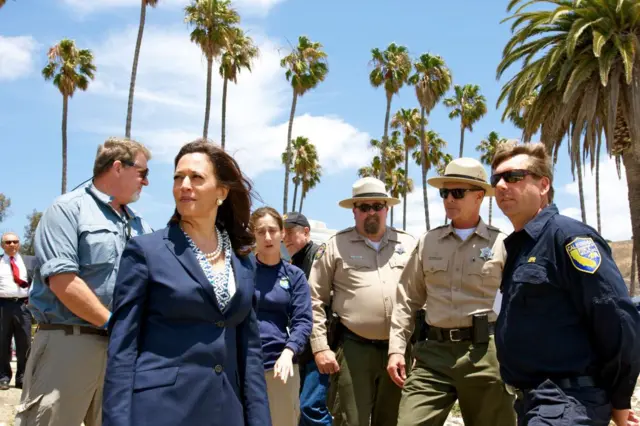As the new Vice President Kamala Harris presses on the national policy and social issues, renewed attention to her prosecutorial record looms large. Her decades-long career in the California legal system as a prosecutor, San Francisco District Attorney, and California’s Attorney General has significantly impacted Harris’s approach to policy and attendant challenges.
Harris began her law enforcement career as a prosecutor in Alameda County, California, in the 1990s. Early in her career, she mainly focused on violent crimes and child exploitation. During her tenure as San Francisco District Attorney from 2004 to 2011, Harris became quite famous for her “Back on Track” program, which provided education and job opportunities to non-violent drug offenders instead of sending them to jail.
This was a pioneer undertaking that would have passed for revolutionary in its time. It was sent to various cities within the country. Advocates point to a program they believe will reflect Harris’s early years promoting criminal justice reform—an avenue she remains a proponent of to this day.
But Harris’s time as California’s chief state prosecutor has not been all smiles. One of the issues is that she has avoided pushing some of the pressing cases against police officers accused of malpractice and how she handled wrongful convictions. Harris is taking the national lead amid a US focus on reforming criminal justice and holding police in check.
She has defended her decisions, even as she pointed out the systemic and legal challenges she met and recognized areas where she thinks the system can be improved. In recent interviews, she has been forthcoming about balancing public safety and accountability in her present approach.
Since taking the vice president position, Harris has promoted criminal justice reform policies that reflect her current views. She was outspoken about advocating for marijuana at the federal level to become legal, cutting back the mandatory minimum sentences, and investing in community-based crime prevention. Analysts say her prosecutorial history gives her a slightly different perspective, an awareness of the justice system, and an urgency to change those places.
Even with the argument on her record, Harris’s approach speaks to the minds of many supporters who consider her a leader in a position to bridge justice and accountability. As conversations over police reform and systemic change continue, Harris’s prosecutorial past will most certainly be the focus of scrutiny regarding her impact on U.S. policy.















